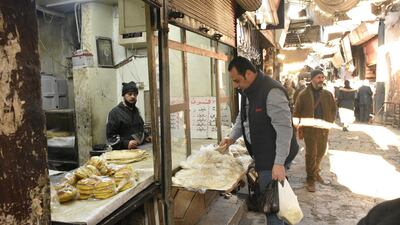Denmark is the first country in Europe to tell refugees from Syria that it is safe to return.
Migrants from the war-torn country will be sent to deportation camps in Denmark but will not be forced to leave.
Human rights groups fear that some Syrians will feel pressured to leave, even though their return is voluntary.
Denmark has already stripped 94 Syrian refugees of their residency status after deciding Damascus and its surrounding area was safe.
Another 1,250 Syrians are in the Scandinavian country.
Danish Immigration Minister Mattias Tesfaye said refugees knew that the country's protection was temporary.
"We have made it clear to the Syrian refugees that their residence permit is temporary. It can be withdrawn if protection is no longer needed," Mr Tesfaye told the Daily Telegraph, which first reported the decision.
“We must give people protection for as long as it is needed. But when conditions in the home country improve, a former refugee should return home and re-establish a life there."
Danish and international activists were shocked at the decision.
“The government hopes that they will go voluntarily, that they will just give up and go on their own,” said Michala Bendixen, from the Danish rights group Refugees Welcome.
Steve Valdez-Symonds, refugee and migrant rights director at Amnesty International UK said: “Seeking to force people back into the hands of this brutal regime is an appalling affront to refugee law and people’s right to be safe from persecution.
“This reckless violation of Denmark’s duty to provide asylum also risks increasing incentives for other countries to abandon their own obligations to Syrian refugees."
The Syrian civil war, which began in 2011, developed into a bitter conflict that brought in outside powers and fuelled allegations of war crimes for, among other atrocities, the use of chemical weapons.
The independent UN Syria Commission of Inquiry last month condemned international negligence with the conflict and “opportunistic” foreign military support.
The commission detailed human rights abuses and war crimes, often for short-term political gains or under dubious clams of fighting terrorism.
It highlighted horrific conditions under which civilians live and the threat they face from the Syrian government and its allies, rebel groups and proscribed terrorist organisations.
Warring factions used weapons that minimised the risk to their fighters but not civilians, the commission said.
The report reiterated the need for an immediate and permanent ceasefire that would lead to Syrian-led negotiations being backed by the UN Security Council, enforced by key member states and heeded by the government and armed groups.



